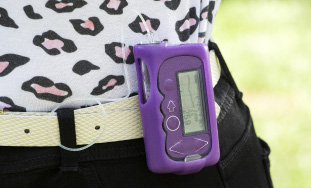Pharmaceutical & Devices
Dangerous Drugs and Defective Medical Devices
Each year, pharmaceutical companies manufacture and market thousands of new drugs, including prescription medications, over-the-counter drugs, and herbal supplements, as well as a wide range of medical devices. Although these products are meant to address health concerns ranging from high cholesterol and hypertension to mental health issues and migraines, some of these products pose serious health risks to consumers. The Food and Drug Administration (FDA) is responsible for regulating and approving these products. However, despite the FDA’s rigorous testing protocols, far too many FDA-approved drugs and medical devices are responsible for causing serious injuries and health complications. In fact, according to the Centers for Disease Control and Prevention (CDC), over 40,000 fatalities each year are related to dangerous drugs and defective medical devices. In addition, the CDC estimates that over half of all drugs marketed in the United States have dangerous effects. Attorney Diane Fenner has a proven track record of reaching successful outcomes for clients who suffered serious injuries or health complications related to dangerous drugs or defective medical devices.
 Prescription drugs and medical devices are essential for treating a wide range of diseases, injuries, and other health complications. The companies that market and sell these products have a responsibility to ensure that the drug or the medical device is safe and effective. Too often, however, companies prioritize profits over safety by rushing their testing and trials of new drugs before they submit them to the FDA. The same can be said for defective medical devices. According to statistical data, the majority of injuries and fatalities associated with a drug occur within the first 12 month of the product’s release. This suggests that the drug was not sufficiently tested and that additional product trials should have been conducted prior to the drug’s approval. It also means that the product in question may have been released without a full understanding of the risks it poses to consumers.
Prescription drugs and medical devices are essential for treating a wide range of diseases, injuries, and other health complications. The companies that market and sell these products have a responsibility to ensure that the drug or the medical device is safe and effective. Too often, however, companies prioritize profits over safety by rushing their testing and trials of new drugs before they submit them to the FDA. The same can be said for defective medical devices. According to statistical data, the majority of injuries and fatalities associated with a drug occur within the first 12 month of the product’s release. This suggests that the drug was not sufficiently tested and that additional product trials should have been conducted prior to the drug’s approval. It also means that the product in question may have been released without a full understanding of the risks it poses to consumers.
Unfortunately, when a dangerous drug or defective medical device is approved and marketed to health care providers and consumers, there is a risk of serious health complications. In severe cases, the dangerous drug or defective medical device can cause tragic fatalities. When this happens, the pharmaceutical company or the medical device company responsible for manufacturing, distributing, and advertising the dangerous product, may be held liable for the resulting injuries or health complications.
Home Page
"*" indicates required fields



Can I File a Lawsuit for a Dangerous Drug or Defective Medical Device?
The prospect of taking legal action against a powerful pharmaceutical company or medical device company can feel like a daunting and overwhelming task. In many cases, these companies have hundreds of millions of dollars at their disposal to pay for a team of experienced lawyers, witnesses, and other experts in order to avoid paying a costly settlement or taking any responsibility for the harm that the drug or medical device caused. However, if an individual suffered an injury or health complication that was caused by a dangerous drug or a defective medical device, the pharmaceutical company or medical device company may be held liable for the following reasons:
- Defective design: If there is a defect in the design process of the drug or medical device, the manufacturer may be held liable for any resulting injuries or health complications. These cases are particularly dangerous, since they affect the entire line of the drug or device that has been marketed to the public.
- Manufacturing defect: This occurs when there is an error in the manufacturing or production process. Unlike defective designs, this only impacts one or more lots of the product rather than the entire product line.
- Warning or labeling defects: Pharmaceutical companies and medical device companies are required to warn consumers about any potential hazards or side effects associated with the drug or the device. This includes any side effects, drug interactions, allergies, and other possible hazards of which the consumer should be aware. A failure to provide the necessary warning labels on the product packaging can result in the company being held liable. In some cases, doctors will prescribe medications for reasons not approved by the FDA. This is known as off-label prescribing. If a patient suffers serious health complications after taking a medication for off-label use, the doctor and/or pharmaceutical company may be held liable for the resulting injuries.
Can I File a Lawsuit for an Injury Related to an E-Cigarette?
Although e-cigarettes such as Juul are not a type of medication or medical device, they are considered a dangerous drug. Previous lawsuits claim that the high nicotine levels in Juul pods and e-cigarette fluids are addictive and have led to serious health issues, including seizures, serious lung disease, and strokes. Unfortunately, a significant portion of consumers who use e-cigarettes such as Juul are teens. In fact, according to the U.S. Surgeon General, there is an e-cigarette epidemic among the youth in the United States.
What are the Claims Against Juul E-Cigarettes?
A total of 758 Juul lawsuits have been filed as of July 2020, many of which claim that the company specifically markets to minors. The lawsuits also stated that the company promoted the use of nicotine, that the marketing failed to warn consumers that its nicotine products are more potent and addictive than regular cigarettes, and that the products are defective and unreasonably dangerous. The following are examples of current lawsuits that specifically name Juul e-cigarettes as the cause of serious health complications and/or fatalities:
- A wrongful death lawsuit was filed against Juul by the parents of 18-year-old David Wakefield. According to Wakefield’s mother, he had been exposed to Juul marketing at the age of 15, at which time he started vaping. Approximately a year after he started vaping, Wakefield was hospitalized for breathing and lung complications. By this time, he was so addicted to nicotine that the hospital staff had to use nicotine patches to help control his cravings. He continued vaping after being released from the hospital. On the morning of August 31, 2019, Wakefield’s father discovered that he had passed away in his sleep. The wrongful death lawsuit claimed that the Juul products were a key factor in causing the teen’s death.
- Two college students from Alabama filed a lawsuit against Juul in 2019, claiming that the e-cigarettes caused them to develop serious lung disorders. Nineteen-year-old Elizabeth Swearingen had been a cross country athlete in high school but started having trouble breathing when performing even simple tasks. John Thomas Via Peavy started using Juul e-cigarettes when he was 17. At 19, Peavy started to experience severe breathing problems after using Juul and continued to experience chest congestion and a loss of appetite. Both Swearingen and Peavy unintentionally swallowed vape fluids while using Juul. According to the National Capital Poison Center, swallowing the fluids used in e-cigarettes or vaping pens can be fatal.
- In 2019, Maxwell Berger sued Juul after suffering a massive stroke at the age of 19. According to the lawsuit, Berger started using Juul e-cigarettes when he was a senior in high school. Over the course of two years, he became so addicted that he was using the device every 10 minutes. In July 2017, he suffered a massive hemorrhagic stroke that caused him to suffer paralysis on his left side, speech impairment, and partial vision loss. The lawsuit claims that the Juul e-cigarettes were so addictive that Berger developed a two-Juul-pod-a-day habit, which is equivalent to smoking 40 tobacco cigarettes a day, and that this caused the massive stroke.
How Do I File an E-Cigarette Lawsuit?
If a consumer suffered a serious health complication associated with Juul e-cigarettes, including addiction, seizures, lung conditions, or stroke, they may consider filing a products liability lawsuit against the e-cigarette company. When preparing for a lawsuit, it is highly recommended that they preserve the e-cigarette device, including the vaping fluid. In addition, the injured party should keep a detailed log documenting how long they have been vaping, how often they use e-cigarettes, and how many vape pods they use in a typical day. If the injured party sought medical attention for the health issues related to e-cigarettes, they should obtain copies of all medical records and recommended treatment. Attorney Diane Fenner is actively involved in Juul litigation and has extensive courtroom experience advocating for individuals who were seriously injured by dangerous drugs, including Juul e-cigarettes, and defective medical devices. Diane and her skilled legal team will thoroughly investigate the details of the case; determine who is liable for the injuries or health complications; and secure the financial compensation the victim deserves, including medical expenses, lost wages, and pain and suffering.
What Types of Injuries are Caused by Dangerous Drugs or Defective Devices?
The types of injuries that patients may sustain are varied and will depend on the drug or medical device. The following are examples of serious health risks associated with dangerous drugs:
- Arrhythmia
- Birth defects
- Bladder cancer
- Bone fractures
- Deep vein thrombosis
- Gastrointestinal injuries
- Heart failure/heart attack
- Kidney disease/kidney failure
- Liver toxicity
- Lung disease
- Stroke
- Sudden death
- Tissue necrosis
Defective medical devices can cause the following injuries:
- Allergic reaction
- Chronic pain
- Heart attack
- Infection
- Organ loss
- Permanent disability
- Sexual dysfunction
- Stroke
- Tissue or bone damage
What Damages May I Receive for a Dangerous Drug or Defective Medical Device Injury?
Dangerous drugs, defective medical devices, and e-cigarettes can cause a range of serious injuries and health complications. Many of these injuries are preventable if the drug companies or medical device companies prioritize safety over profit and ensure that the products go through a rigorous approval process and are safe for consumers to use. Unfortunately, this does not always happen, and products are approved and marketed to consumers despite posing serious health risks to the public. If a dangerous drug or defective medical device caused an individual to suffer a serious injury or illness, he or she may be eligible for the following damages:
- All medical expenses associated with the injury or illness
- Lost wages and future lost earning capacity
- Pain and suffering
- Loss of enjoyment of life
- Loss of consortium
The Legal Team at Fenner Law Helps Those Injured by Dangerous Drugs, E-Cigarettes, or Defective Medical Devices
If you or someone you love suffered a serious injury or health complication from a dangerous drug, an e-cigarette, or a defective medical device, do not hesitate to contact Fenner Law. Call 215-761-9802 or contact online to set up an initial consultation. Fenner Law’s offices are conveniently located in Philadelphia, and serve clients throughout Pennsylvania and South Jersey, as well as nationwide.
